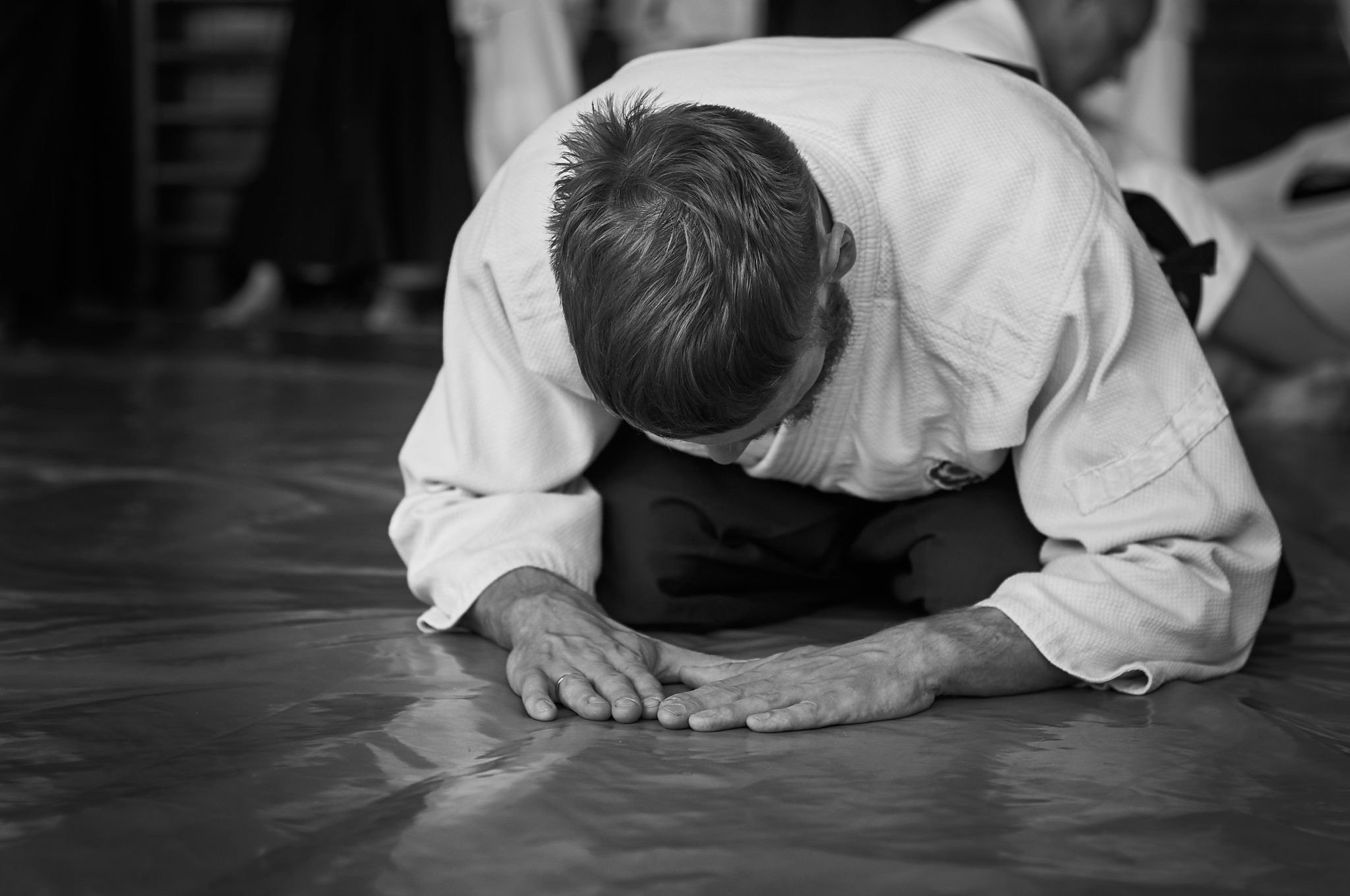What is “OSU”?
"Respect, discipline, and perseverance – the spirit of 'Osu' in every bow and movement."
“Osu” is a word heard frequently in the dojo; “What does ‘Osu’ mean?” is the most frequently asked question. “Osu” is a shortened form of “Ohayo gozaimasu” (good morning) but it has a much deeper meaning. An excellent explanation is given in the following article written by Robert Mustard Sensei:
All of us who practice Yoshinkan (style) Aikido are familiar with the word “Osu”. We use it when we enter the dojo, when we start class, when the Sensei show us a technique, when we pour beer for each other at parties and especially when (the) Sensei yell at us and we don’t know what they’re talking about! I even use it when I receive my dry cleaning or get my change at the 7-ll, which usually results in strange looks from the respective cashiers. But what does “Osu” really mean? Does it have a deeper meaning?
In Japan, the only people who use “Osu” are usually the sports team of the high schools and universities, and most karate styles. In most companies you will hear “Osu”, but it is usually a lazy man’s way of saying “Ohayo gozaimasu” (good morning). As far as I know, the only style of Aikido that uses this word is the Yoshinkan style of Gozo Shioda.
Kancho Sensei attended Takushoku University, which has a strong reputation for its hard training in Budo, and it also has a reputation as a stronghold for far right-wing sentiments. My former Kendo teacher was the captain of the Takushoku Kendo team, and he told me training stories that made my hair stand on end. In order to continue the Takudai and old style tradition of hard training (Shugyo), Yoshinkan Aikido continues the use of “Osu” while other styles do not.
If you look at the word “Osu” written in the original Chinese, it is comprised of two characters. The first character is “Osu, which the dictionary defines as “push”. The second character is “Nin”, which the dictionary defines as “Shinobu”, which means endure, persevere, put up with. If you put them together you get – to push ourselves to endure any hardship, in training or in our daily lives.
Also, in the field of Budo it is used as a greeting or reply with the connotation as a sign of your willingness to follow a particular teacher or way of training.
The most important aspect of the word “Osu” is that we must not let the word, through repeated overuse with no feeling, lose its meaning of reminding ourselves to always train as hard as possible. It must come from our hearts and really have meaning. I have had the experience of showing some people techniques or correcting their techniques and their reply of “Osu” has left me feeling that they are not interested in what I have to say or teach and kind of telling me to go away. Needless to say, I refrained from showing or teaching these people further until they showed me by their actions that they wanted to learn.
Surely there can be no greater misrepresentation of Yoshinkan Aikido, than a person saying they practice Yoshinkan Aikido, but their “Osu” has no conviction or spirit. I don’t want to give the impression that we should always be screaming OSU at each other at the tops of our lungs, but let’s try to find the conviction to always do our best in our training and also in our daily lives. Kancho Sensei always said, “Aiki soku seikatsu” or “Aikido is life”.
I wish you good luck with your training.

